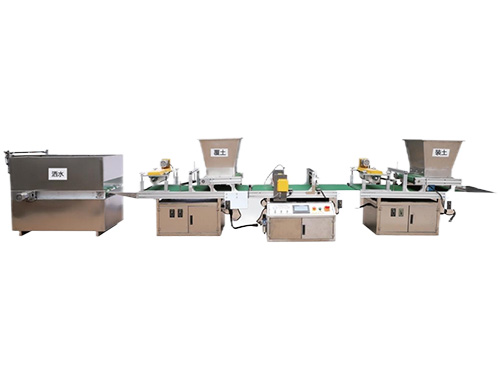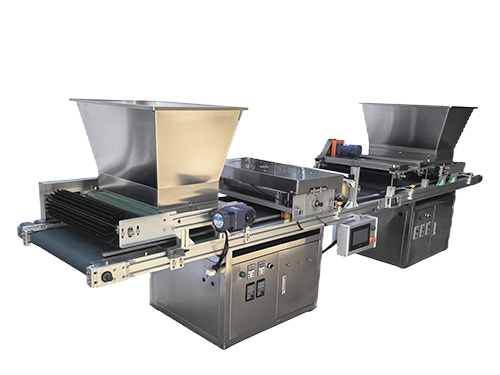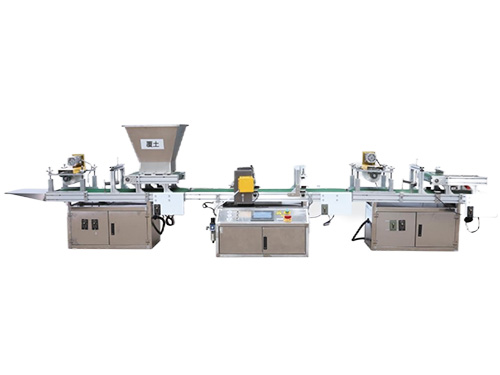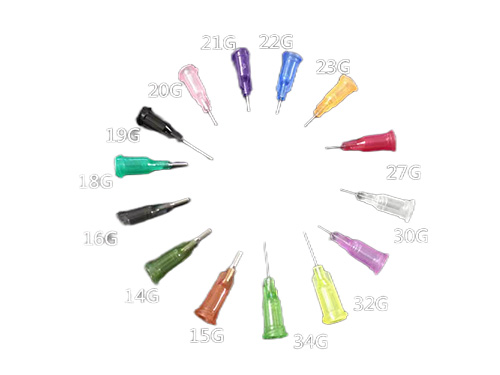The Impact of Root Control Devices on Plant Disease Resistance: Scientific Research and Experimental Evidence
2024-12-29 20:44:33
In modern agriculture, plant disease resistance is a crucial factor influencing yield and quality. Enhancing crop resistance and reducing the impact of plant diseases on agricultural production have become significant research areas in global agriculture. The root control device, as an advanced agricultural control tool, not only optimizes the growing environment of plant roots but also significantly impacts plant disease resistance. This article will explore how root control devices affect plant disease resistance and demonstrate their practical effectiveness through scientific research and experiments.
What is a Root Control Device?
The Smart Root Control Device is an agricultural tool that integrates sensors, automated control, and data analysis technologies. It primarily controls critical parameters in the plant root environment, such as temperature, moisture, and nutrients. By precisely adjusting these factors, the smart root control device can improve plant survival rates, resistance to stress, and overall yield.
Regarding disease resistance, the root control device enhances plant immunity by improving the root growing environment, thereby boosting plant disease resistance.
How Root Control Devices Improve Plant Disease Resistance
1. Enhancing Root Health
Plant roots are essential for absorbing water and nutrients and also interact directly with soil microorganisms.
The smart root control device can monitor and adjust soil moisture, temperature, and nutrient concentration in real-time, ensuring optimal root growth conditions and reducing the occurrence of root diseases. For example, stable moisture and temperature can decrease the likelihood of root rot.
2. Strengthening Plant Immune Responses
Healthy roots boost a plant's natural immunity. Studies have shown that when plant roots are in an optimal growing environment, they produce more disease-resistant substances, such as antioxidant enzymes and disease-resistant proteins.
The smart root control device promotes the production of these immune responses by adjusting the root environment, thereby enhancing disease resistance.
3. Reducing Pathogen Transmission Risks
In traditional farming, pathogens often spread through soil. The smart root control device can control moisture and nutrient distribution, preventing pathogen buildup in root areas and thereby reducing transmission risks.
Automated drainage systems also effectively prevent pathogen proliferation caused by standing water, ensuring root health protection.
4. Improving Nutrient Absorption and Stress Resistance
With precise fertilization, the smart root control device distributes nutrients according to plant needs.
Balanced nutrient absorption not only accelerates crop growth but also enhances resistance to various plant diseases. For instance, sufficient potassium, phosphorus, and silicon elements strengthen plant cell structures, improving disease resistance.
Scientific Research: The Relationship Between Root Control Devices and Plant Disease Resistance
Experimental Evidence: Preventing Root Rot with Root Control Devices
Numerous scientific studies show that using smart root control devices significantly reduces the likelihood of root rot. For example, in hydroponic systems, adjusting water temperature and moisture distribution effectively controls the reproduction of root rot pathogens.
In an experiment, controlling temperature and humidity in a hydroponic system with a root control device resulted in a 40% improvement in root health and a 70% reduction in root rot incidence.
Nutrient Control and Disease Resistance Enhancement
Research has shown that smart root control devices can precisely control nutrient distribution in plant roots through fertilization technology. These nutrients not only meet plant growth needs but also enhance resistance to stress.
Experimental data indicates that plants adjusted with smart root control devices exhibit stronger resistance to fungal diseases. This is because balanced nutrient conditions enable plants to better synthesize disease-resistant substances.
Practical Applications: Enhancing Disease Resistance in Agricultural Production with Root Control Devices
1. Disease Protection in Greenhouse Farming
In greenhouse farming, the root control device integrates with temperature control and automated irrigation systems to achieve comprehensive root management. By automatically adjusting temperature, moisture, and nutrients, it prevents root diseases.
2. Precision Root Control in Hydroponic Systems
In hydroponic agriculture, smart root control devices, combined with irrigation, drainage, and LED lighting systems, can precisely manage the root environment even in limited spaces.
These systems improve root efficiency in water and nutrient absorption and reduce opportunities for pathogen transmission in root areas.
3. Soil Health Management in Sustainable Eco-Agriculture
In eco-agriculture, the smart root control device, combined with biodegradable materials and natural fertilizers, protects soil ecosystems.
Precise fertilization and automated irrigation reduce the use of synthetic fertilizers, minimizing soil pollution risks and protecting the soil's microbial community.
Challenges and Solutions
Cost Issue: High Equipment and Technology Investment
The smart root control device requires numerous sensors and data analysis technologies, resulting in higher production costs. To reduce costs, modular design, mass production, and technology sharing can be adopted.
Technological Standardization and Equipment Compatibility Challenges
In vertical farming, hydroponic systems, and soil-based farming, integrating the root control device with other equipment poses a challenge.
Through industry collaboration and standardized agreements, seamless integration with irrigation, fertilization, and temperature control systems can be achieved, ensuring a comprehensive system integration.
Conclusion
The smart root control device is not only a tool for increasing crop yield but also a crucial method for enhancing disease resistance. By optimizing the root environment, promoting plant immune responses, reducing pathogen transmission risks, and providing precise fertilization, it significantly boosts crop disease resistance.
With technological advancements and cross-industry collaboration, smart root control devices will become more widespread, cost-effective, and efficient. If you aim to improve disease resistance in agricultural production and reduce plant disease impact, contact us. We offer professional, customized smart root control device solutions to achieve a more efficient and sustainable modern agricultural production model.

It adopts electrical integration and can be started by pressing the fully automatic button ...

The XP750 seeder has stable performance, excellent product quality, simple and convenient o...

It adopts electrical integration and can be started by pressing the fully automatic button ...

Needle list Seed nozzle model Different models Sowing types are different...



